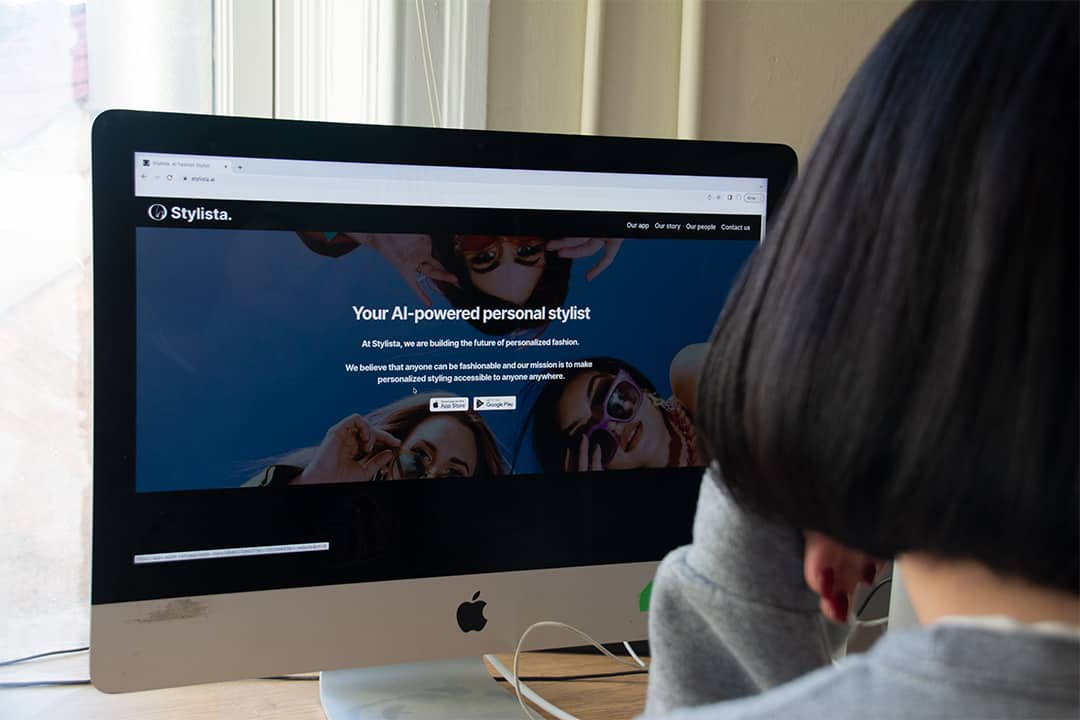U of T engineering alumnus and investment professional Roman Leifer has co-founded an artificial intelligence (AI)-powered personal stylist, Stylista.ai.
Leifer’s co-founder is his wife, Ziqi Liu. Liu is the one who brought the original vision for Stylista, Leifer said in an interview with The Varsity. “The idea is to imagine a personal stylist who’s also your best friend, is able to personalize things for you, and is always available,” he said.
From CPP Investments to creating a stylist
With the boom of AI technology in recent months, Leifer and Liu decided that the time was ripe to realize their ambition. Leifer pointed to Jeff Bezos’ regret minimization philosophy as the thing that ignited his entrepreneurial spirit and prompted him to pivot away from his previous career. Leifer left his job at CPP Investments, sat down at a computer to apply the technical knowledge he’d developed in his undergraduate studies, and built a proof of concept.
Having worked in the consulting and financial industry since his graduation in 2007, Leifer explained that the teaching approach at U of T’s Faculty of Engineering heavily influenced his development of Stylista’s initial groundwork. “I think the way of thinking is just developed over a long, long time… the way it teaches you to think is just to take any problem, no matter how vague, how difficult, and how overwhelming [the problem is], and just break it down into different steps and solve each of those steps.”
After months of experimentation, the minimum viable product was launched on the App Store in early January. The app is now also on Google Play and is free to download.
Business plans
In the short term, Leifer said, Stylista hopes to attract as much user feedback as possible. “The key for us as a new startup is just continuing to listen to our users and seeing what it is people want,” he added.
At the moment, the app consists of a few core elements, such as Outfit of the Day inspiration and a “StyleMe” search engine. It gives the user ChatGPT-enabled specific responses concerning fashion choices, in which users have real-time conversations with Stylista to build their outfits for different occasions. Importantly, Leifer noted, he and Liu are making a point to avoid having the tool simply give generic advice.
The outfit inspiration function is powered by an array of themes that users can choose from, like ‘Office’ or ‘Mob Wife.’ The app also recently added a “Surprise Me” feature, which pulls outfits from multiple themes for the user to browse through.
In the medium term, Leifer and Liu are hoping to introduce the ‘try-on’ function in six months, which visualizes what users would look like in certain outfits without physically trying them on. According to Leifer, the industry has yet to see such a technological breakthrough, but he believes such technology will soon be reliable and widespread for everyone to enjoy.
Finding innovation in frustration
While Stylista has established its basic infrastructure, its future development hinges on AI technology’s rapid and unpredictable evolution. “[For] some of the features that we’re working on,” Leifer explained, “the research has only come out in the last six months.”
Leifer expressed that this constant uncertainty is cause for a lot of frustration and the flipside of working in such a cutting-edge industry. “If it was easy, then there’d be a hundred people doing it, right?” Leifer said.
At the same time, Leifer noted that being a small start-up gives Stylista a crucial advantage over larger companies since they can quickly pivot their development and marketing strategies as AI research develops.
Plus, Leifer said he finds excitement in the ambiguity and growth on the leading edge in the technology sector. “I’d say [the working hours of a] startup [are] even longer [than finance or consulting] because there’s just so much to do. But, I wake up every day with a smile on my face.”



No comments to display.